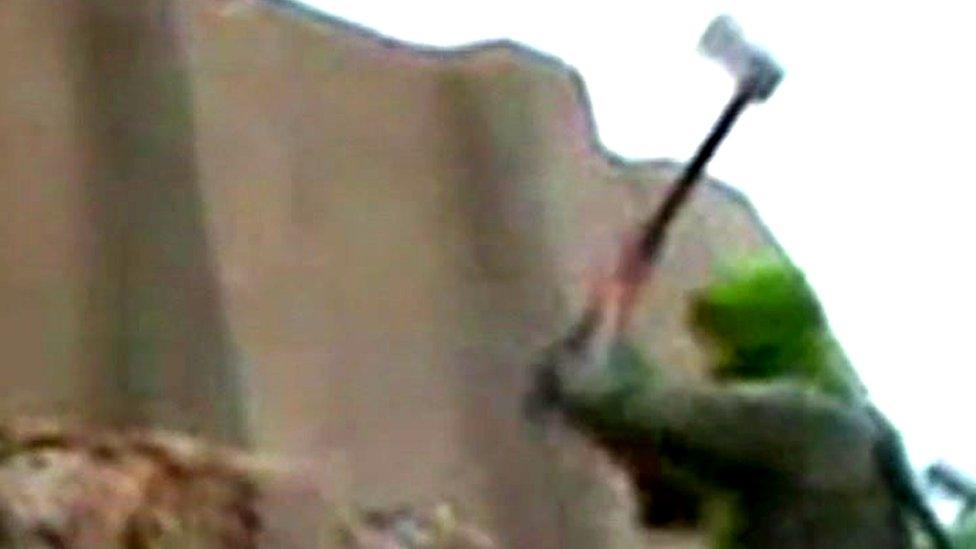Mali rebel 'to admit' Timbuktu mausoleum destruction at ICC
- Published

Ahmad al-Faqi al-Mahdi appeared at the ICC in September for an initial hearing
An Islamist rebel has said he will plead guilty to destroying religious and cultural sites in the Malian city of Timbuktu, prosecutors at the International Criminal Court (ICC) say.
Ahmad al-Faqi al-Mahdi made the admission at an earlier closed hearing, prosecutor Fatou Bensouda told ICC judges after they ruled there was enough evidence to put him on trial, external.
Mr Mahdi is accused of the destruction of nine mausoleums and a mosque.
Islamists occupied the city in 2012.
The court has previously heard that Mr Mahdi, a former teacher aged about 40, was a "zealous member" of Ansar Dine, a Tuareg extremist militia with links to al-Qaeda.
He is alleged to have been head of the Hesbah - or what some call the "manners' brigade" - which enforced strict Islamist law in Timbuktu during the unrest that rocked Mali in 2012 and 2013, and of being involved with and executing the decisions of the so-called Islamic Court of Timbuktu.
Caroline Hawley explains the significance of the ICC war crimes case
Mr Mahdi - who was handed over by Niger after the ICC issued an arrest warrant - is the first person to face a war crimes charge for the destruction of religious monuments.
Prosecutor Bensouda said his "admission of guilt" would also "be a milestone in the history of the ICC".
During their occupation, the militants vandalised and destroyed mosques and mausoleums, and burnt tens of thousands of ancient manuscripts.
The city - which is listed as a World Heritage Site by Unesco - was considered the centre of Islamic learning from the 13th to the 17th Centuries.
At one time it counted nearly 200 schools and universities that attracted thousands of students from across the Muslim world.
The mausoleums were shrines to Timbuktu's founding fathers, who had been venerated as saints by most of the city's inhabitants.
But this practice is considered blasphemous by fundamentalists.
At least 14 mausoleums have since been rebuilt by local stone masons using traditional techniques.

Treasures of Timbuktu

Timbuktu was a centre of Islamic learning from the 13th to the 17th Centuries
700,000 manuscripts had survived in public libraries and private collections
Books on religion, law, literature and science
Added to Unesco world heritage list in 1988 for its three mosques and 16 cemeteries and mausoleums
They played a major role in spreading Islam in West Africa; the oldest dates from 1329
Islamists destroyed mausoleums after seizing the city in April 2012

- Published30 September 2015
